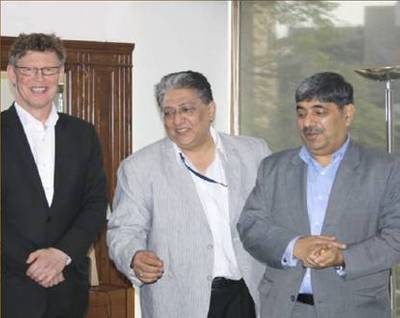MARIS and ARI Extend Links
Electronic navigation and ECDIS specialist, Maritime Information Systems AS, (MARIS) and New Delhi-headquartered ARI Simulation, the ISO 9001:2000 certified leading global supplier of simulation technology, are to extend their long-standing cooperation in three key areas.
The two companies are to focus on type specific training, combined certification and on providing charts and electronic navigational data through MARIS Digital Services (MDS) to all ARI installations. The new level of cooperation complements the two companies’ Original Equipment Manufacturer (OEM) agreement under which ARI offers ECDIS simulators to the shipping industry. “ARI Simulation is a 400-person knowledge-centric organisation with more than 100 simulation installations across the globe, said Shravan Rewari, Managing Director, ARI Simulation.
“ARI ECDIS Simulator is a complete system for training and understanding the operation of an electronic chart display and information system (ECDIS) and can be used to demonstrate STCW 95 competencies and to meet objectives of the International Maritime Organization modular course 1.27.
“The ARI ECDIS simulator is designed in full compliance with the requirements of STCW’95 sections AI/12, A-II/1, A-II/2 which deals with competence on planning and conducting a passage and determining position,” he added.
Steinar Gundersen, Deputy Chief Executive (Corporate) MARIS AS said: “Both MARIS and ARI Simulation have invested heavily in customising solutions for specific client needs and the decision to extend the cooperation agreement underscores our joint determination to better serve the maritime industry.”
The Manila amendments to the STCW Convention and Code that were adopted on June 25 2010 under the tacit acceptance procedure are aimed at bringing the Convention and Code up to date with developments since they were adopted, and to enable them to address issues that are expected to emerge. The adopted amendments include a number of important changes to each chapter of the Convention and Code, including new requirements relating to training in modern technology such as electronic charts and information system.


















